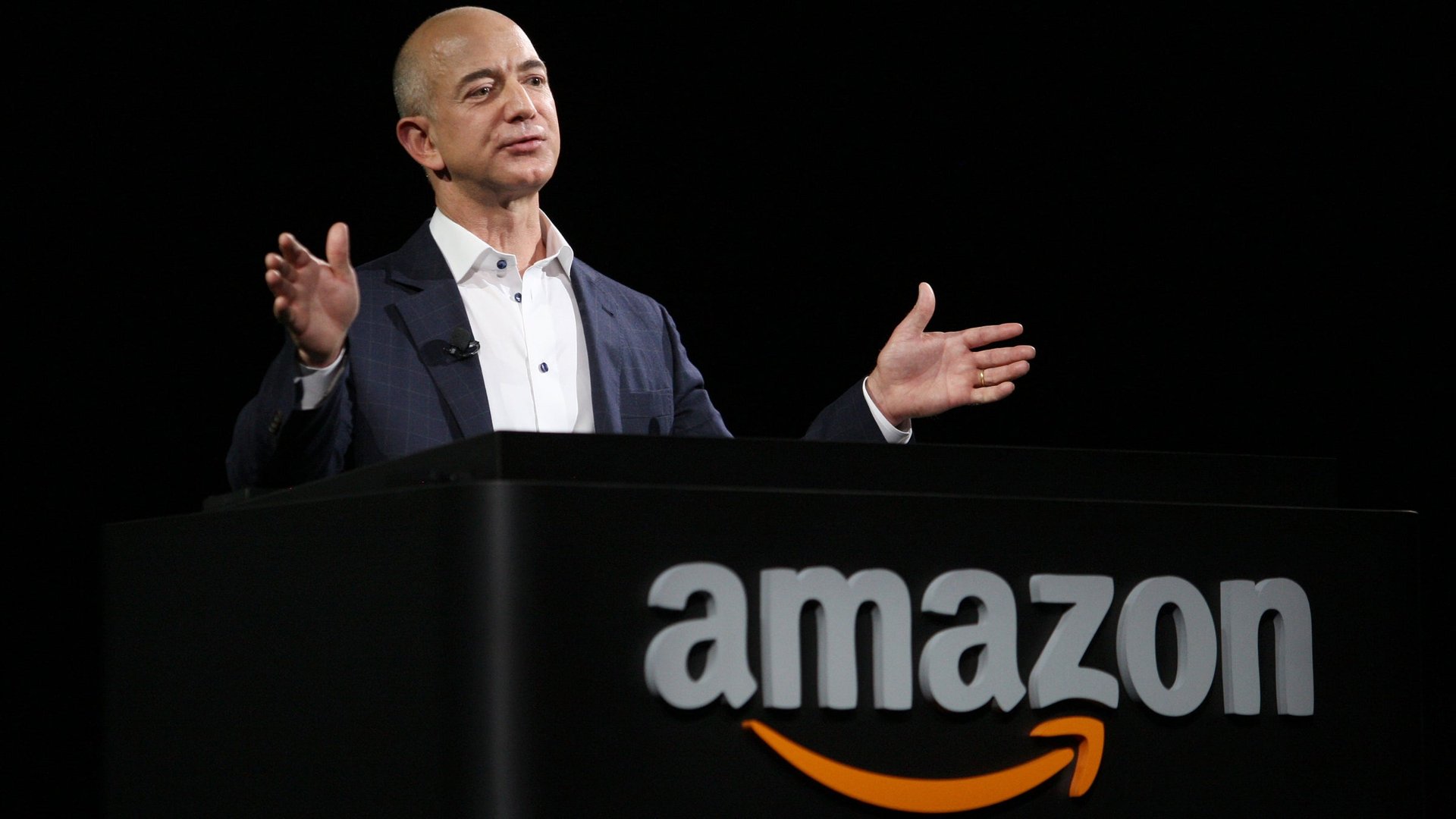Why Amazon is like the cable company of the future
This week, Amazon announced plans to bring online grocery shopping to Los Angeles with a new service called Amazon Prime Fresh. For $79, Amazon Prime already gives customers two-day shipping and access to thousands of streaming movies and TV shows. But for a $299 annual fee, Prime Fresh members can order fresh food from their couch from Amazon and expect to pick up groceries at the door in a matter of hours.


This week, Amazon announced plans to bring online grocery shopping to Los Angeles with a new service called Amazon Prime Fresh. For $79, Amazon Prime already gives customers two-day shipping and access to thousands of streaming movies and TV shows. But for a $299 annual fee, Prime Fresh members can order fresh food from their couch from Amazon and expect to pick up groceries at the door in a matter of hours.
Amazon CEO Jeff Bezos has already trained Wall Street to expect that little he does will turn a profit for years, so don’t expect Prime Fresh to make much money. At least for now. This move continues Amazon’s assault on retail, where even giants like WalMart and Costco have announced that online grocery delivery is a nearly impossible business. Amazon’s message is: Impossible for you, maybe…
A $300 subscription to Amazon Prime Fresh doesn’t just buy access; it also binds shoppers to Amazon as their overwhelming source of all Internet shopping. “It will help to make Amazon the starting point for online purchases—more than it already was—and give consumers even less of a reason to shop anywhere else,” Morningstar equity analyst R.J. Hottovy said. Being the starting point for online purchases is everything: Google’s biggest source of online advertising comes from searches with a shopping intent. Why look anywhere else when only Amazon will get it to you today?
As Farhad Manjoo wrote at Slate, Amazon’s grand infrastructure strategy has visibly shifted. At first, it was: set up distribution centers in cheap states and ship to where the people are. Now the company is buying warehouses in the largest cities so that once you click BUY, online orders can go from their distribution centers to your doorstep in hours, not in days. More from Farhad:
If Amazon can send me stuff overnight for free without a distribution center nearby, it’s not hard to guess what it can do once it has lots of warehouses within driving distance of my house. Instead of surprising me by getting something to me the next day, I suspect that, over the next few years, next-day service will become its default shipping method on most of its items… Getting something shipped to your house offers gratification that’s even more instant: Order something in the morning and get it later in the day, without doing anything else. Why would you ever shop anywhere else?
This ambitious strategy would be sort of insane for any large-cap company whose shareholders care about quarterly earnings. That is to say: any company except Bezos’s. But Amazon is already so dominant in cloud and e-retail that shareholders expect the company will eventually flip a switch on its infrastructure quasi-monopoly, and voila, profits forever.
Today’s most famous infrastructure quasi-monopolies in the private sector are probably the cable companies. Laying cable is expensive for both legal and material reasons (Verizon abandoned its nationwide projects after covering less than 20 percent of the country). Cable companies can charge such a mark-up on the communications bundle because they have a massive infrastructure advantage in a high-barrier industry.
Ditto Amazon, which is building a bundle of its own. Fresh Prime offers a unique package of services that takes advantage of the company’s lead in digital and physical infrastructure: infinite books, fast shipping, fresh groceries, free streaming. Who in the world would try to build a competitor to this strange amalgam of hugely expensive and hardly profitable services?
No one. And, for Bezos, that is precisely the point.
Derek Thompson is a senior editor at The Atlantic, where he oversees business coverage for TheAtlantic.com.